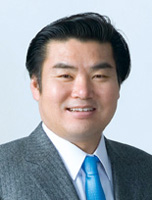National Security and Bridge for the People and Armed Forces Top Priority
 There are no differing opinions on the presumption that the remaining two years of the 18th National Assembly are a very crucial period in terms of national security.
There are no differing opinions on the presumption that the remaining two years of the 18th National Assembly are a very crucial period in terms of national security.
North Korea has already termed 2012 as the target year for achieving ¡°the status of a powerful giant country¡± and has been doing all it can to beef up its military strength, despite its economic difficulties. Knowing that they cannot stand against the South in terms of traditional arms, they began to arm themselves with nuclear weapons, mid- to long-range missiles, conducting a number of nuclear bomb experiments, firing missiles, in addition to triggering a number of clashes in the sea off the west coast to do away with the Northern Limit Line (NLL) and raise the tension on the Korean Peninsula. As if that was not enough, they committed the barbaric act of torpedoing and sinking the Cheonan patrol boat of the Korean Navy, killing 46 of those on board.
What the National Defense Committee needs is a special focus on that fact that both Korea and the United States will dissolve the Korea-U.S. Combined Command in 2012 when the commanding rights of the combined forces during wars will be transferred to Korea. To make matters worse, both countries will hold presidential elections that same year.
Especially at this time, the possibility for rapid changes in the North has been rising lately with Leader Kim Jong-il¡¯s ill health, economic troubles, international isolation and an unstable system simultaneously, auguring for the possible sudden collapse of the governing system in the North.
There is also a growing possibility that the global strategy of the United States and the Northeast Asian strategy of China, the G-2 powers, might collide if a sudden change occurs in the North, the situation likened to walking on thin ice.
The National Defense Committee is faced with a mountain of issues to take care of in the next two years ¡ª the latter half of the 18th National Assembly ¡ª a truly critical period to say the least. The committee has to discover every detail surrounding the sinking of the naval patrol vessel, such as what caused their failure to defend themselves against the attack, actions taken after the sinking, its loose defense posture and a weakened Naval discipline. The committee must come up with measures to prevent such incidents from recurring, reestablish military discipline and the security awareness of our military and strengthen our defense posture.
The committee also has to look into the reform of defensive measures to see if they are headed in the right direction and, if not, reestablish them in a bid to boost the effectiveness of national defense management by resetting the military power structure to cope with changes in our security environment in tune with the types of incidents triggered by the North.
The timing of the transfer of the wartime military operation rights to Korea, on which the future of the Korea-U.S. alliance depends, and the execution of the relocation of the U.S. military units in Korea without a hitch are some of the difficult problems we are faced with.
It was a dangerous decision to transfer military operation rights to Korea simply for the sake of a sovereign nation controlling its own wartime military operations, at a time when the North is conducting nuclear bomb tests without carefully considering various military conditions on the Korean Peninsula and the capability of the Korean armed forces. No consideration went into the decision to take over the wartime operation rights, a very risky decision to say the least.
The sinking of the Cheonan and the meek actions taken after the incident and the incomplete defensive readiness of our Naval forces speak well for the riskiness of the decision to take over wartime operation rights.
The committee should strongly recommend that the government renegotiate with the United States on the timing of the transfer of wartime operation rights based on situations regarding such issues as the North¡¯s nuclear problem, the establishment of a peace system on the Korean Peninsula and the establishment of a military trust between the South and North ¡ª three major conditions ¡ª as well as the readiness of the Korean military to exercise their wartime operation rights.
The committee also should provide both legislative support and keep tight surveillance on the reestablishment of the image of the Defense Acquisition Program Administration (DAPA) on ways to improve the national defense procurement system, the development of the defense industry, the improvement of military barracks, welfare for the military and a support system for medical facilities for the military.
Also, the committee should come up with measures for the employment of retired military personnel.
As the saying goes, there are no pros or cons on national security matters, thus the National Defense Committee has been dealing with national defense issues over and above partisan interests through dialogue in a rational and smooth manner, making it a model committee in the parliament.
In taking charge of the operation of the committee, I will try my best to steer the committee to do its job well, which is to study national security in a sincere manner and be stern on maintaining its position on related government agencies and organizations in dealing with them and bringing the military and the people closer. I will also see that the committee does its job fully and be a cheering section for military officers and soldiers in the area of increasing their welfare. nw
By Rep. Won Yoo-chul, Chairman, The National Defense Committee, The National Assembly
3Fl, 292-47, Shindang 6-dong, Chung-gu, Seoul, Korea 100-456
Tel : 82-2-2235-6114 / Fax : 82-2-2235-0799